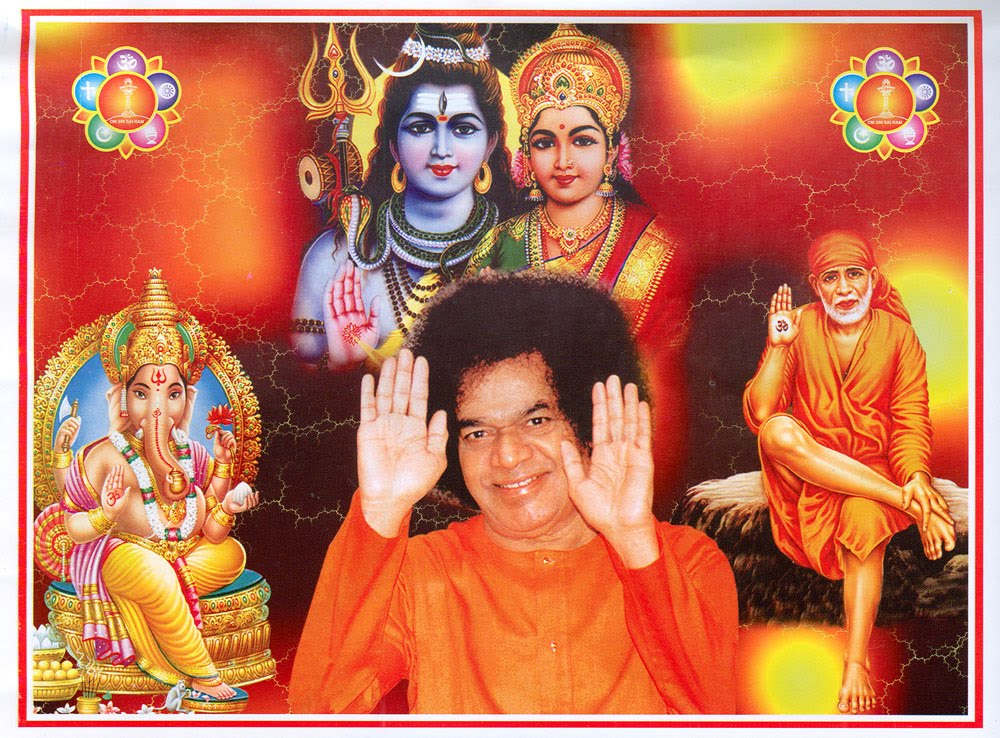sairam,
En un satsang celebrada en la presencia divina en Singapur, 8 de Agosto de 2017 un devoto solicita orientación sobre la importancia de sánscrito en la sociedad moderna.
Y esto es lo que dijo Swami:
Pregunta : He leído acerca de aprender sánscrito. Siempre me he preguntado acerca de la relevancia de comprensión o incluso aprender sánscrito como lengua. A pesar de que no usamos el lenguaje mucho en nuestra vida diaria, una gran cantidad de mantras, incluyendo canto Rudram, están en sánscrito. Muchas veces, durante la lectura de traducciones, tengo la impresión de que no es una traducción perfecta. ¿Es importante en nuestra sociedad moderna de aprender y comprender el sánscrito?
Swami : El sánscrito es la lengua de los dioses. Los primeros pensamientos que vinieron a los rishis, los cuales se ponía en palabras estaban en sánscrito. Es bueno aprender sánscrito porque se puede entender las cosas claramente con la primera lectura o experiencias de la lengua. Es un lenguaje muy bello y muy lógico. No hay daño en aprender sánscrito. Se eliminará de la mente el tema de la confusión y malos entendidos; Por lo tanto, es bueno. Si decide aprender por su cuenta otro idioma, no hay nada más bello que el idioma sánscrito, que es tan precisa, tan lógico, tan hermoso y tan rítmica que es casi musical. Ese es el lenguaje del sánscrito.
Si se entera de sánscrito, no es un problema. No aprender un nuevo idioma. Si aún así no puede aprender, a pesar de tratar, a continuación, se refieren a dos o tres traducciones que tocan el corazón y la apelación a usted, y trabajar con ellos. Eso es muy importante.
Sin embargo, si usted no sabe un idioma, no trate de predicar a los demás - que es muy peligroso. Cuando usted no sabe un idioma y se habla de ella, se puede girar y cambiar su significado. Conocer la lengua es muy importante. Sin saber, el canto como un loro puede simplemente cambiar el significado.
Hay una gran canción Tyagaraja - sabes que? Thyagaraja cantó a Rama, "Ne pogadakunte neekemi kodavu Rama?" Significa, "Si yo no alabo, ¿qué vas a perder, Rama? Usted va a perder nada si no te alabo ".
Otra persona lo cantó como "Ne pakoda tinte neekemi kodhavu?" Eso quiere decir: "Si yo como pakodas, ¿cuál es tu problema?" (Risas) En Telugu, 'pagadu' significa 'a la alabanza', mientras que 'pakoda' se refiere a un aperitivo frito.
Véase, todo el significado cambia si no conoce el idioma. Por lo tanto, es mejor que se aprende y luego cantar. Entender primero y después cantar, que es muy buena si no puede enseñar todo el lenguaje. De lo contrario, aprender de los estudiosos que lo conocen bien, o utilizan dos o tres traducciones donde se puede comparar y aprender de ellos. En última instancia, el significado debe tocar tu corazón.
Es importante enseñar a sí mismo en otro idioma. Luego, también, si se trata de un idioma como el sánscrito, la madre de todas las lenguas, no hay nada como él.
-
Si usted o alguien que usted conoce estaría interesado en recibir correos electrónicos sobre Swami Q & A, actualizaciones de Satsang, los artículos inspiradores, oraciones a Swami, por favor registrarse aquí:
Sairam,
In a satsang held in the divine presence in Singapore,8 August 2017; a devotee seeks guidance on the importance of Sanskrit in modern society.
And here is what Swami said:
Question: I have read about learning Sanskrit. I always wondered about the relevance of understanding or even learning Sanskrit as a language. Even though we don't use the language a lot in our daily living, a lot of mantras, including Rudram chanting, are in Sanskrit. Many times, while reading translations, I get the impression that it's not a perfect translation. Is it important in our modern society to learn and understand Sanskrit?
Swami: Sanskrit is the language of the gods. The first thoughts that came to the rishis, which they placed into words were in Sanskrit. It is good to learn Sanskrit because you can understand things clearly with the first reading or experiences of the language. It is a very beautiful and very logical language. There is no harm in learning Sanskrit. It will remove from the mind the issue of confusion and misunderstanding; therefore, it is good. If you decide to teach yourself another language, there is nothing more beautiful than the Sanskrit language, which is so precise, so logical, so beautiful and so rhythmic that it is almost musical. That is the language of Sanskrit.
If you learn Sanskrit, it is not a problem. Do learn a new language. If you still cannot learn, despite trying, then refer to two or three translations that touch your heart and appeal to you, and work with those. That is very important.
However, if you do not know a language, do not try to preach it to others – that is very dangerous. When you do not know a language and you speak of it, you can twist and change its meaning. Knowing the language is very important. Without knowing, chanting like a parrot may just change the meaning.
There's a great Thyagaraja song – do you know it? Thyagaraja sang to Rama, "Ne pogadakunte neekemi kodavu Rama?" It means, "If I don't praise You, what are You going to lose, Rama? You are going to lose nothing if I don't praise you."
Another person sang it as, "Ne pakoda tinte neekemi kodhavu?" That means, "If I eat pakodas, what is your problem?" (Laughter) In Telugu, 'pagadu' means 'to praise', whereas 'pakoda' refers to a fried snack.
See, the whole meaning changes if you do not know the language. Therefore, it is better you learn and then chant. Understand first and chant after, which is very good if you cannot teach yourself the whole language. Otherwise, learn from scholars who know it well, or use two or three translations where you can compare and learn from them. Ultimately, the meaning should touch your heart.
It is important to teach yourself another language. Then too, if it is a language like Sanskrit, the mother of all languages, there is nothing like it.
--
If you or someone you know would be interested to receive emails about Swami Q&A, Satsang updates, Inspiring Articles, Prayers to Swami, please signup here:





















No hay comentarios :
Publicar un comentario